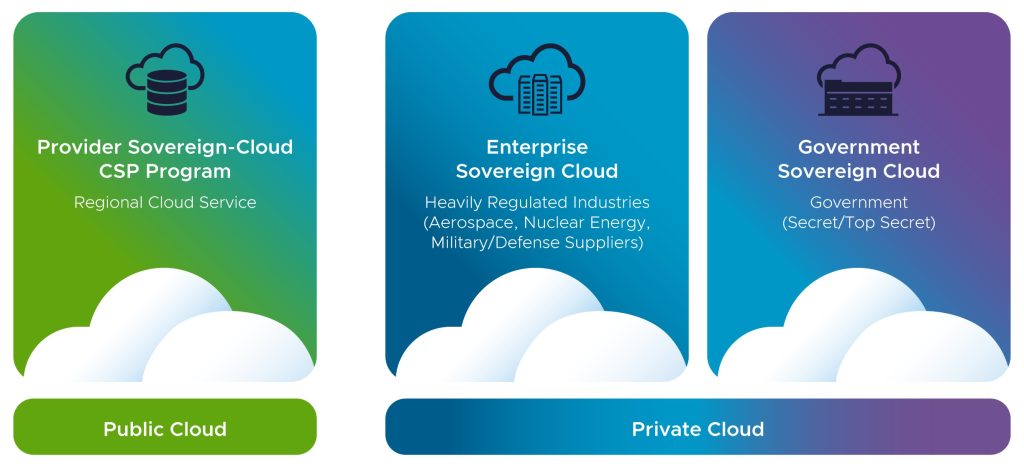The Effect of National Cloud Solutions on Global Data Management

In recent years, the concept of national sovereignty in cloud computing has gained considerable attention as states grapple with data governance in an progressively linking world. As digital evolution accelerates across multiple sectors, the need for reliable and compliant data storage methods has led to the emergence of sovereign clouds. These national cloud computing infrastructures are designed to ensure that a country's data remains under its control, conforming with domestic laws and requirements.
The rise of independent cloud services marks a critical shift in how data is administered, supervised, and secured. Countries are now emphasizing their digital sovereignty, seeking to reduce risks related to data protection and security that can arise from using external cloud providers. This emerging trend not only demonstrates the nuances of global data management but also underscores the need for balancing progress with legal adherence. As hostino examine closely into this subject, we will discuss the implications of state-controlled cloud systems on multiple interests, including states, companies, and clients.
Grasping National Cloud Computing
National clouds represent a notable transformation in how data is stored, processed, and governed inside a nation. Such cloud services are intended to adhere to country-specific data security standards and make certain that data independence is maintained. This indicates that sensitive data generated by companies and individuals is protected by the legal frameworks of the respective nation, reducing the potential danger of external oversight and confirming that data privacy standards are adhered to.
The emergence of national clouds is largely fueled by rising concerns over information security and safety in an increasingly interconnected online environment. Governments and organizations are increasingly recognizing the risks associated with using global cloud providers that may not adhere to national guidelines and guidelines. By adopting sovereign cloud options, governments can foster greater trust among the populace and enterprises, guaranteeing that their data stays within the jurisdiction established by local laws.
Additionally, self-governing clouds can enhance economic growth by nurturing local technology industries. This shift allows nations to build resilient infrastructures that bolster the advancement of their own cloud offerings, providing possibilities for creativity and building careers. As countries dedicate efforts to their self-governing cloud networks, they set themselves up to adequately tackle global concerns related to data governance while bolstering their digital independence.
Perks of Local Clouds

Local clouds offer enhanced data security and confidentiality, which are vital for businesses handling confidential information. By keeping data within country borders, sovereign clouds minimize the risks associated with security breaches and foreign access from overseas organizations. This localized approach ensures that data is governed by the legislations and rules of the state where it resides, providing businesses with increased control over their data protection strategies. As data privacy concerns continue to escalate, the adoption of national clouds becomes an appealing solution for enterprises seeking to comply with strict laws.
Another important merit of sovereign clouds is the contribution they provide for national economies. By encouraging the growth of data centers and cloud solutions within a nation, national clouds generate job opportunities and promote technological advancements. This localization encourages collaboration between government entities, businesses, and research organizations, leading to new developments and the development of a qualified workforce. Ultimately, this financial expansion can enhance a state's competitiveness on the international stage while ensuring that technological developments serve the needs of its population.
Furthermore, sovereign clouds can strengthen sovereign autonomy and robustness. By lessening dependence on overseas service providers, nations can guarantee that their vital digital infrastructure is secure from international conflicts and outside risks. This independence allows nations to maintain control over their information infrastructure and plans, empowering them to react more effectively to disruptions, such as cyberattacks or law amendments. As a result, national clouds contribute not only to the robustness of organizations but also to the overall integrity of a state’s electronic ecosystem.
Obstacles and Factors
The growth of the independent cloud presents various challenges that must be addressed to ensure its effectiveness in international information governance. One major issue is the intricacy of information localization laws which change considerably from one jurisdiction to the next. Organizations must maneuver through a complex landscape of rules that can create barriers to data sharing and interoperability. This intricacy can lead to increased operational costs and impede innovation, as companies may face challenges to meet with differing requirements while trying to take advantage of cloud solutions.
Another consideration is the possible limitations in technological abilities when using national clouds. While they provide enhanced data sovereignty and compliance, they may not necessarily offer the same level of cutting-edge technologies or tools as international cloud services. Organizations might find themselves limited by the available options, impacting their potential to scale and develop. This could result in a dependence on multiple providers, challenging the management of data governance and increasing risks associated with data fragmentation.
Lastly, the creation and maintenance of national cloud infrastructures demand considerable investments in security and data confidentiality measures. As countries implement these systems, they must ensure that strong protections are in place to secure sensitive data against breaches and abuse. Striking the right balance between accessibility and security will be crucial, as heightened security measures can sometimes hinder user experience and encourage hesitancy among stakeholders to embrace sovereign cloud solutions.
